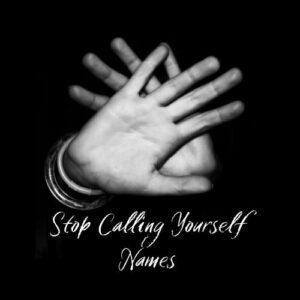It’s natural to want to help the people we care about when they’re in distress, but knowing the best approach can be confusing and awkward. It’s common to want to cheer someone up in these moments, but it can backfire. Here are some types of cheer likely to leave your person feeling worse for your efforts.
Sunny Side Cheer
If we feel uncomfortable with or responsible for someone’s negative emotions, we’ll look for ways to get them out of their feelings fast. Dismissing or negating others’ feelings can come from good intentions disguised as cheer. Themes of this cheering type involve attempting to get the other person to look on the bright side, telling them things could be worse, and trying to keep the focus on the sunny side of the street. Though it’s true the way we interpret circumstances in our lives directs our experience of them, being able to shift those interpretations isn’t a cognitive switch we can turn on or off, nor is it a linear or logical process. When someone you care about is hurting, they need acknowledgment of their struggle first and foremost so beware trying to rush a perspective change can create more harm than help.
Try replacing, “Look on the bright side,” to “That sounds painful.”
Gratitude Cheer
Telling someone to count their blessings or remind them of all the things they have to be grateful for when they’re in a dark place is tantamount to telling them they’re doing their feelings wrong. If internalized, the recipient of such cheer will be invited to add a second helping of bad feelings (ie. to feel bad about feeling bad).
Try replacing, “think of everything you have to be grateful for,” with “how can I help?”
Reason-Seeking Cheer
Everything happens for a reason
God works in mysterious ways
There’s a valuable lesson for you here
If you’ve ever been on the receiving end of these cheerful platitudes you know the less-than-cheerful feelings they can evoke. Humans are meaning-making machines and we are wired to look for meaning. An important part of healing or recovery from any difficult time can be a search for how to make sense of things for ourselves, but nudging others there prematurely can unintentionally push people away and create disconnection and isolation instead of support.
Try replacing, “Everything happens for a reason,” with, “I’m so sorry you’re going through this.”
This Too Shall Pass Cheer
It’s often difficult to be a helpless bystander when someone you care about is suffering. As such, we can feel compelled to move them through the tough time at a speedy pace. Sometimes we encourage them to get a new dog or a new date, sometimes we remind them they’ll be over it soon or that before long they’ll look back on things with humor or distance. It feels supportive but it can translate as rejecting of your loved one’s current state.
Try replacing, “You’ll feel better soon,” with “I’m here for you if you need to talk or cry or just hang out.”
Comparative Cheer
Sometimes we want others to know we’ve been through similar struggles as a way to connect. It can be helpful to know we’re not alone, but sometimes sharing can tip over into comparing and that’s when our efforts to support can backfire. If you’re using a lot of “me,” and “I,” you may be entering this territory. Here are other clues you could be slipping into this type of cheer:
“You think you’re going through a tough time, let me tell you what I went through…”
“I know exactly how you feel…here’s what happened to me…here’s how I handled it….”
Try replacing, “You think THAT’s bad…” with “I think I know a bit about what you’re going through but what it’s like for you?”
Advice Giving Cheer
The drive to solve problems is a hallmark and strength of our species but when it comes to supporting someone in pain it can backfire. Mostly emotional pain is an experience to process, not a problem to solve. When we approach someone’s pain like a broken piece in need of our tools and instructions, we run the risk of creating a problem instead of fixing one. Though advice-giving is usually well-intentioned, beware before offering it unsolicited.
Try replacing, “I know just the thing you should do to feel better,” with, ”I can see how bad you’re feeling”.
As a final note remember that we can’t read others’ minds and as such, we can’t know what someone wants unless we ask. There are times we may want to be cheered up. So instead of trying to guess or assume what someone needs, it’s well worth the risk to as them directly.
Next time someone you care about it going through dark times, instead of offering some cheer try asking, “would you like to be cheered up or talk about what’s going on and get some support?” This kind of direct inquiry helps bypass the guesswork so we can be there with and for those that matter to us in the way they need us most.



